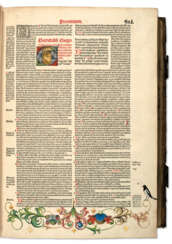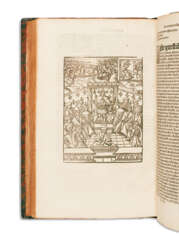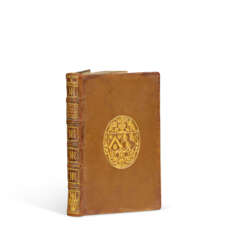
Books and manuscripts

Jacques Callot was a baroque printmaker and draftsman from the Duchy of Lorraine (an independent state on the north-eastern border of France, southwestern border of Germany and overlapping the southern Netherlands). He is an important person in the development of the old master print. He made more than 1,400 etchings that chronicled the life of his period, featuring soldiers, clowns, drunkards, Gypsies, beggars, as well as court life. He also etched many religious and military images, and many prints featured extensive landscapes in their background.
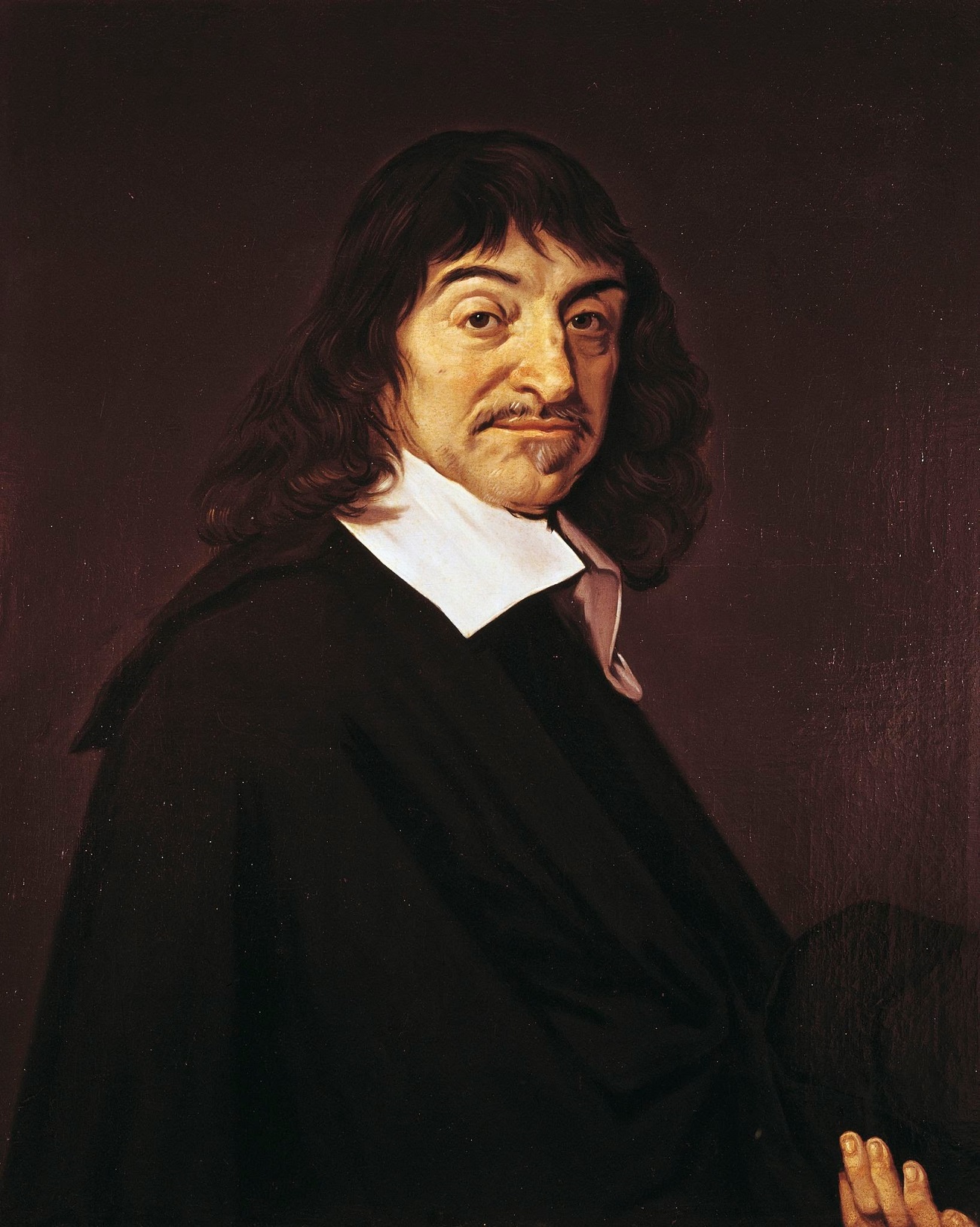
René Descartes was a French philosopher, mathematician, and natural scientist who is considered the founder of modern philosophy.
Descartes was a very versatile scientist: besides numerous philosophical reflections, he wrote works on optics, meteorology and geometry. Contemporaries noted his extensive knowledge in many sciences. Descartes owns the famous saying "I think, therefore I exist" (best known in the Latin formulation "Cogito, ergo sum", although it was originally written in French: "Je pense, donc je suis").
He developed a metaphysical dualism that radically distinguished between mind, whose essence is thought, and matter, whose essence is extension in three dimensions. Descartes' metaphysics is rationalistic, based on the postulation of innate ideas of mind, matter, and God, but his physics and physiology, based on sense experience, are mechanistic and empirical.
Unlike his scientific predecessors, who felt a holy awe at the incomprehensibility of the divine essence of the universe, Descartes admired the ability of the human mind to understand the cosmos and to generate happiness itself, and rejected the view that human beings were inherently unhappy and sinful. He believed that it was inappropriate to pray to God to change the state of things and the world; it was much more productive to change oneself.
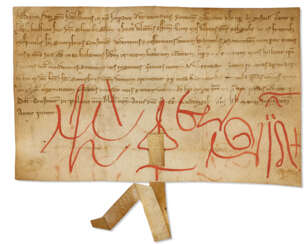

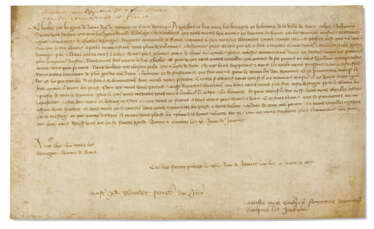



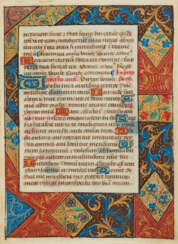

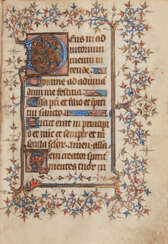

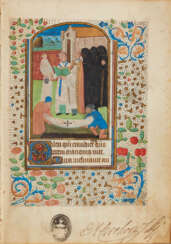



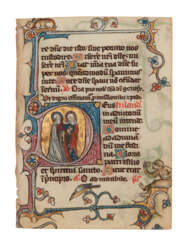

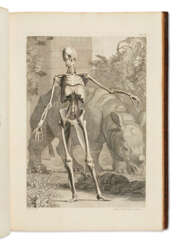

![[ANCIEN TESTAMENT] Prophetae Minores, Libri Machabaeorum Rom...](/assets/image/picture_1077784/2c63d/a31c0ba2802bce1e59d75e9fea6742531604358000jpg__fix_374_244.jpeg)
![[ANCIEN TESTAMENT] Prophetae Minores, Libri Machabaeorum Rom...](https://veryimportantlot.com/assets/image/picture_1077784/2c63d/a31c0ba2802bce1e59d75e9fea6742531604358000jpg__fix_374_244.jpeg)
![[AUBIGNÉ, Théodore Agrippa d' (1552-1630)] Les Avantures du ...](/assets/image/picture_1080043/ea117/wr4vn5oxq0xww03mw-ryckgrlfzh2hjs8-jgglnh2utgl5bxyjdjkmq6gdgq2bx1602251647jpg__fix_374_244.jpeg)
![[AUBIGNÉ, Théodore Agrippa d' (1552-1630)] Les Avantures du ...](https://veryimportantlot.com/assets/image/picture_1080043/ea117/wr4vn5oxq0xww03mw-ryckgrlfzh2hjs8-jgglnh2utgl5bxyjdjkmq6gdgq2bx1602251647jpg__fix_374_244.jpeg)
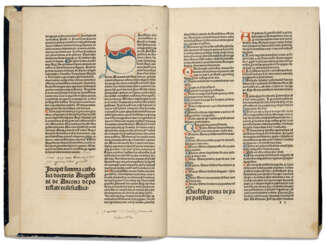

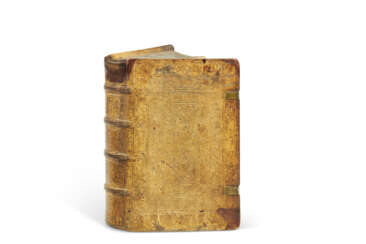

![[BIBLE ALLEMANDE] Catholische Bibell Cologne : G Calenium et...](/assets/image/picture_1077719/d8a97/8fce72a53f675e13a18329c45c719b111604358000jpg__fix_374_244.jpeg)
![[BIBLE ALLEMANDE] Catholische Bibell Cologne : G Calenium et...](https://veryimportantlot.com/assets/image/picture_1077719/d8a97/8fce72a53f675e13a18329c45c719b111604358000jpg__fix_374_244.jpeg)




![CASTIGLIONE, Baldassare (1478-1529) Le premier [-quart] livr...](/assets/image/picture_1080045/4b2a1/pacp16g2aagwf75jcgczokbyev42tdh3zl0peqentfa6yivuelwtmujn-5in1602251660jpg__fix_374_244.jpeg)
![CASTIGLIONE, Baldassare (1478-1529) Le premier [-quart] livr...](https://veryimportantlot.com/assets/image/picture_1080045/4b2a1/pacp16g2aagwf75jcgczokbyev42tdh3zl0peqentfa6yivuelwtmujn-5in1602251660jpg__fix_374_244.jpeg)
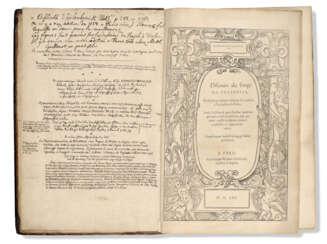

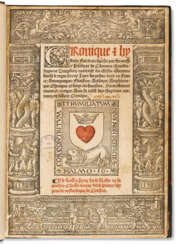

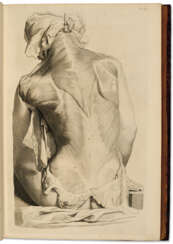

![[CRONICA CRONICARUM] Le Registre des ans passez puis la crea...](/assets/image/picture_1077599/9ac72/ec6fe3bf7c9668d43271e9e86e948b111604358000jpg__fix_374_244.jpeg)
![[CRONICA CRONICARUM] Le Registre des ans passez puis la crea...](https://veryimportantlot.com/assets/image/picture_1077599/9ac72/ec6fe3bf7c9668d43271e9e86e948b111604358000jpg__fix_374_244.jpeg)
![[DANSE MACABRE] - RUSTING, Salomon van (1652-c 1713) Het Sch...](/assets/image/picture_1080050/30406/6xi5acbmhqzowzmxnzewkgag13arhw3dnwxceofawnhuoonvbeobke12c83qgow91602251697jpg__fix_374_244.jpeg)
![[DANSE MACABRE] - RUSTING, Salomon van (1652-c 1713) Het Sch...](https://veryimportantlot.com/assets/image/picture_1080050/30406/6xi5acbmhqzowzmxnzewkgag13arhw3dnwxceofawnhuoonvbeobke12c83qgow91602251697jpg__fix_374_244.jpeg)
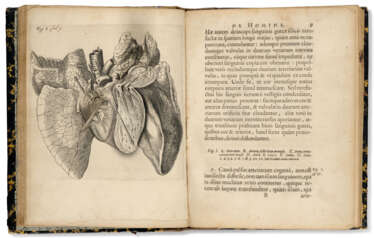



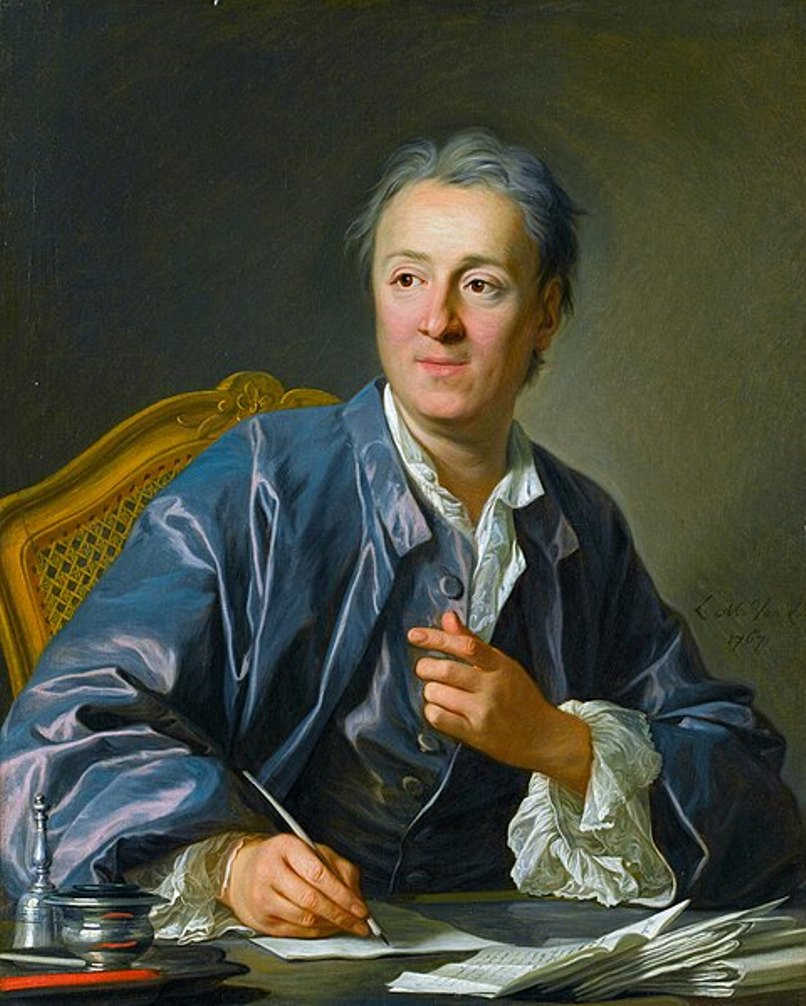


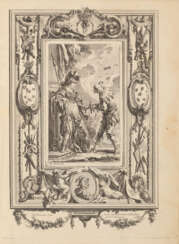

![FROISSART, Jean (circa 1337- circa 1410) Le premier [-quart]...](/assets/image/picture_1077665/60031/e47f3e138e52111ca8feb81215eda7bf1604358000jpg__fix_374_244.jpeg)
![FROISSART, Jean (circa 1337- circa 1410) Le premier [-quart]...](https://veryimportantlot.com/assets/image/picture_1077665/60031/e47f3e138e52111ca8feb81215eda7bf1604358000jpg__fix_374_244.jpeg)
